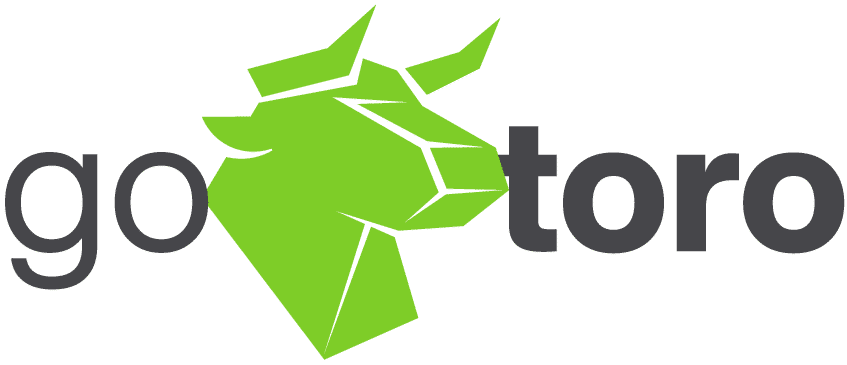The staffing industry is rapidly evolving, driven by new staffing industry trends such as the rise of comprehensive job board services, the necessity of embracing change, and the growing importance of technology. Staying ahead of these trends is crucial for businesses aiming to remain competitive. This blog will explore key staffing industry trends and provide strategies for successful adaptation, ensuring that companies are well-prepared for the future.
Importance of Staying Ahead of Staffing Trends for Business Success
Staying ahead of staffing industry trends is essential for business success. Companies that adapt to these trends can attract top talent, improve efficiency, and foster innovation. Ignoring these trends can lead to talent shortages and hindered growth. Embracing change, investing in technology, and promoting continuous learning are key to thriving in this competitive market.
Key Trends in Staffing
Job Boards Offering Direct Recruitment
Comprehensive Services
One of the most significant staffing industry trends is the evolution of job boards like Indeed, which now offer end-to-end recruitment services. These platforms provide comprehensive solutions, from posting job openings to sourcing and screening candidates, conducting interviews, and making job offers. This holistic approach aims to simplify the recruitment process, making it more efficient and effective for employers.
Efficiency and Effectiveness
By offering direct recruitment services, job boards streamline the hiring process, reducing the time and resources needed to find the right candidates. This efficiency allows businesses to focus on other critical areas while ensuring they hire top talent quickly and effectively. The integration of these services within a single platform enhances the overall effectiveness of the recruitment process.
Impact on Traditional Recruitment
The rise of direct recruitment services provided by job boards is reshaping traditional recruitment methods. Traditional recruitment agencies must now compete with these comprehensive platforms, which offer a more streamlined and cost-effective solution. This shift is pushing traditional agencies to innovate and enhance their services to stay relevant in the evolving staffing industry.
Rise of Remote Work and Gig Economy

Remote Work Trends
Another pivotal trend in the staffing industry is the increasing prevalence of remote work. The COVID-19 pandemic accelerated this trend, making remote job opportunities more common across various industries. Companies are now more open to hiring remote employees, recognizing the benefits of a flexible workforce.
Gig Economy Expansion
Alongside remote work, the gig economy is expanding rapidly. More professionals are opting for freelance and contract work, seeking flexibility and autonomy in their careers. According to new research by the Upwork Research Institute, more than half of Gen Z professionals performed freelance work last year, compared with 38% of the overall workforce, 44% of millennials, 30% of Gen X, and 26% of baby boomers .
This growth presents both opportunities and challenges for employers as they adapt to managing a more fluid and diverse workforce.
Impact on Recruitment Strategies
The rise of remote work and the gig economy necessitates a shift in recruitment strategies. Employers must now focus on attracting and managing remote and gig workers effectively. This includes developing remote onboarding processes, leveraging digital collaboration tools, and ensuring robust communication channels to maintain productivity and engagement.
Diversity, Equity, and Inclusion (DEI) Initiatives
Importance of DEI
Diversity, equity, and inclusion (DEI) initiatives are becoming a central focus in staffing industry trends. A diverse and inclusive workforce offers numerous benefits, including enhanced creativity, better decision-making, and improved employee satisfaction. Emphasizing DEI can also help companies attract a broader range of talent and improve their employer brand.
Implementing DEI Strategies
To foster DEI in recruitment, companies should implement best practices such as unbiased hiring processes, diverse talent pipelines, and inclusive workplace policies. Providing training on unconscious bias and promoting a culture of respect and inclusion are essential steps in building a diverse workforce.
Measuring DEI Success
Measuring the success of DEI initiatives is crucial for continuous improvement. Companies can use various tools and metrics to track progress, such as diversity audits, employee surveys, and retention rates of diverse hires. Regularly assessing these metrics helps organizations identify areas for improvement and ensure their DEI efforts are effective.
By understanding and adapting to these key staffing industry trends, businesses can stay ahead of the curve and build a resilient, dynamic workforce ready for the future.
Embrace Change
Foster a Culture of Adaptability and Openness to Change
In the rapidly evolving landscape of staffing industry trends, fostering a culture of adaptability and openness to change is essential for business success. Embracing change helps organizations remain competitive and resilient in the face of shifting market demands and emerging technologies. This section explores how companies can create an agile workforce, encourage continuous learning, proactively adapt to trends, and implement effective change management strategies.
Creating an Agile Workforce
Creating an agile workforce is crucial in the context of current staffing industry trends. Flexibility and adaptability are key traits that enable employees to respond quickly to new challenges and opportunities. An agile workforce is not only prepared for change but thrives on it, driving innovation and efficiency.
- Promote collaboration across different departments to foster a more versatile and agile workforce.
- Implement flexible work policies, such as remote work and flexible hours, to accommodate diverse employee needs and improve work-life balance.
- Encourage employees to take initiative and make decisions, empowering them to adapt quickly to new situations.
Encouraging Continuous Learning and Development
Continuous learning and development are vital for keeping skills up-to-date and relevant in the staffing industry. Implementing programs and initiatives that encourage employees to acquire new skills and knowledge helps them stay ahead of industry trends. This commitment to learning fosters a culture of growth and adaptability, ensuring the workforce remains competitive.
- Offer regular training sessions and workshops on emerging technologies, industry best practices, and new skills.
- Provide access to online learning platforms where employees can take courses at their own pace.
- Establish mentorship programs that pair experienced employees with newer staff to facilitate knowledge sharing and skill development.
- Support employees in pursuing professional certifications and attending industry conferences to broaden their expertise.
Proactive Adaptation
Proactive adaptation involves anticipating and preparing for future staffing industry trends. Companies should regularly assess the market, identify emerging trends, and develop strategies to address them. By staying informed and proactive, businesses can adapt to changes more smoothly and maintain a competitive edge.
- Regularly analyze industry trends and market data to identify potential changes and opportunities.
- Develop multiple scenarios for potential future developments and create action plans for each.
- Encourage innovation within the organization by investing in research and development and fostering a culture of experimentation.
- Establish feedback mechanisms to gather insights from employees and clients, helping to identify areas for improvement and innovation.
Change Management Strategies
Effective change management strategies are critical for managing organizational change in response to staffing industry trends. Techniques such as clear communication, employee involvement, and comprehensive training programs can help manage transitions and minimize resistance. By implementing robust change management practices, companies can ensure successful adaptation to new staffing trends and maintain operational stability.
- Maintain transparent communication about upcoming changes, including the reasons behind them and the benefits they will bring.
- Involve employees in the change process by seeking their input and feedback, making them feel valued and invested in the outcome.
- Provide thorough training to ensure employees are equipped with the skills and knowledge needed to adapt to new systems or processes.
- Establish support systems such as help desks, FAQs, and peer support groups to assist employees during transitions.
- Ensure that leadership is visibly committed to the change, providing guidance and support to employees throughout the process.
Invest in Technology

Implement Advanced Tools for Recruitment and Talent Management
Incorporating advanced tools for recruitment and talent management is one of the most significant staffing industry trends today. Technology can streamline processes, improve efficiency, and enhance decision-making, ultimately leading to better hiring outcomes.
Technology Integration
Integrating advanced tools into recruitment processes offers numerous benefits. These tools can automate repetitive tasks, reduce administrative burdens, and free up time for recruiters to focus on more strategic activities. By leveraging technology, companies can manage larger volumes of candidates more effectively and ensure a smoother hiring process.
Data Analytics in Staffing
Using data analytics in staffing is becoming increasingly important. Data-driven insights can help recruiters make informed hiring decisions, identify patterns, and predict future staffing needs. Analytics can track key metrics such as time-to-hire, cost-per-hire, and candidate quality, providing valuable information to optimize recruitment strategies.
AI and Automation
Artificial intelligence (AI) and automation are revolutionizing the staffing industry. AI can screen resumes, schedule interviews, and even conduct initial assessments, significantly reducing the time and effort required for these tasks. Automation can handle routine tasks like sending follow-up emails and updating candidate statuses, ensuring a consistent and efficient recruitment process.
Enhanced Candidate Experience
Improving the candidate experience is another critical aspect of current staffing industry trends. Technology can play a pivotal role in making the application process more user-friendly and engaging.
Streamlined Application Processes
Utilizing technology to simplify job applications can significantly enhance the candidate experience. Mobile-friendly application forms, one-click applications, and automated updates on application status are some ways to make the process more efficient and less frustrating for candidates.
Personalized Candidate Engagement
Leveraging AI for personalized candidate engagement can create a more tailored and positive experience. AI can send personalized messages, recommend job openings based on a candidate’s profile, and provide timely updates, making candidates feel valued and informed throughout the process.
Feedback and Improvement
Collecting candidate feedback is essential for continuously improving recruitment processes. Using surveys and feedback tools, companies can gather insights into candidates’ experiences and identify areas for improvement. This feedback loop ensures that recruitment practices evolve and adapt to meet candidate expectations.
Social Media and Employer Branding

Social media and employer branding are crucial elements of modern staffing industry trends. An effective social media strategy can enhance visibility, attract talent, and build a strong employer brand.
Social Media Recruitment
Using platforms like LinkedIn, Facebook, and Twitter for hiring is an effective way to reach a broad audience. These platforms allow companies to share job postings, engage with potential candidates, and showcase company culture, making them powerful tools for recruitment.
Building a Strong Employer Brand
Strategies for enhancing company reputation include creating engaging content that highlights company values, employee experiences, and career opportunities. A strong employer brand attracts top talent and differentiates the company in a competitive market.
Employee Advocacy
Encouraging employees to promote the company culture and values can amplify employer branding efforts. Employee advocacy programs, where employees share their positive experiences and company achievements on social media, can significantly enhance the company’s image and attract potential candidates.
Understanding and adapting to staffing industry trends is crucial for staying competitive. Embracing changes such as job boards offering direct recruitment, the rise of remote work and the gig economy, DEI initiatives, and advanced recruitment technologies will ensure long-term success. Enhance your candidate experience and leverage social media for employer branding. Ready to transform your recruitment process? Request a demo from GoToro today and stay ahead of the trends.


